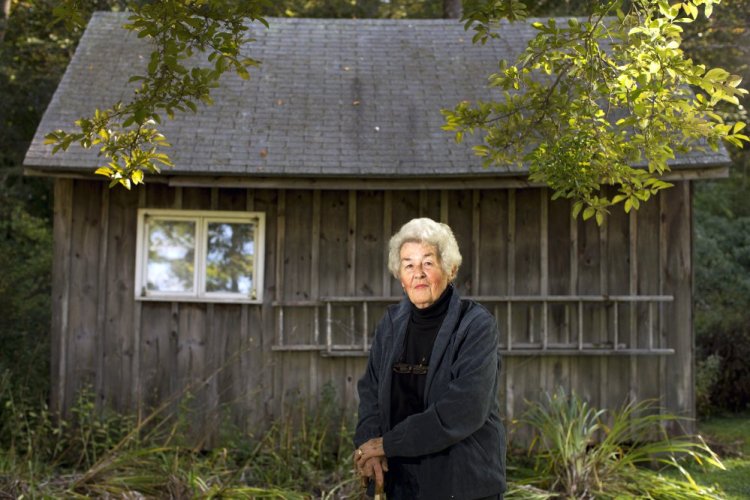Author and historian Joyce Butler’s book, “Wildfire Loose: The Week Maine Burned,” is widely considered the definitive history of the 1947 forest fires that scorched more than 200,000 acres and left an estimated 2,500 Mainers homeless.
The 1979 book has been reprinted three times (most recently in paperback in 2014) and continues to be used in schools as well as cited by journalists or authors revisiting the 1947 fires.
But Butler made an arguably even bigger contribution to Maine history by having the foresight to record her lengthy interviews with the men and women who fought, lost homes to or simply witnessed Maine’s most destructive forest fires. While many of those people are no longer alive, their firsthand accounts (as well as their voices and dialects) are preserved 70 years after the fires altered the landscape and collective memory of Maine.
“It was definitely burned into their memories,” Butler said of the dozens of people she interviewed for her book. “It was frightening, too, because without the communications we have now, people didn’t know where the fire was, where to go and how to get out.”
Butler was a young schoolgirl living in Portland when she remembers seeing smoke rising from Maine State Pier on Oct. 23, 1947 – a day that would become known as “Red Thursday” for the fiery destruction around the state. Much of the pier burned down, a fact that would have been huge news on a day when entire communities – such as Bar Harbor, Newfield and South Waterboro – weren’t being consumed or threatened by walls of flames.
“The air was full of smoke and I remember standing on the lawn of our apartment building and saying, ‘Oh my, everything is going to burn,’ ” Butler recalled.
Roughly 30 years later, Butler was approached to research and write the book that would become “Wildfire Loose.” Starting with local postmasters, she asked around for suggestions on who to speak with.
She interviewed firefighters who leapt from blaze to blaze, all the while wondering if their own homes were still standing. She also spoke with women who were forced to flee into the ocean with their children as the inferno burned their homes as well as women who worked at the “canteens” that sprung up near fire zones to feed the hordes of volunteers trying to stop the spreading flames.
For many, it was likely the first time they had told their personal stories of the fires beyond their circle of family and friends.
“I was amazed,” Butler said. “I remember one woman who literally wept telling me her family’s experiences. She just cried and it was 30 years after it happened.”
Butler also gathered reports from state agencies and towns and interviewed key state officials involved in coordinating the massive firefighting efforts.
More than three dozen of those interview recordings – most dating to 1977 – are now housed at the University of Maine’s Raymond H. Fogler Library Special Collections Department in Orono. She also donated many of her notes and research papers to the Maine Historical Society, where she has served as curator of museum collections. Butler also formerly served as town historian for Kennebunk and is a founding member of the Society of Maine Archivists.
Now 84, Butler said she is pleased “Wildfire Loose” was reprinted in 2014 by Down East Books and hopes future generations will continue to use it to learn about Maine’s most destructive forest fire season.
Send questions/comments to the editors.





Success. Please wait for the page to reload. If the page does not reload within 5 seconds, please refresh the page.
Enter your email and password to access comments.
Hi, to comment on stories you must . This profile is in addition to your subscription and website login.
Already have a commenting profile? .
Invalid username/password.
Please check your email to confirm and complete your registration.
Only subscribers are eligible to post comments. Please subscribe or login first for digital access. Here’s why.
Use the form below to reset your password. When you've submitted your account email, we will send an email with a reset code.